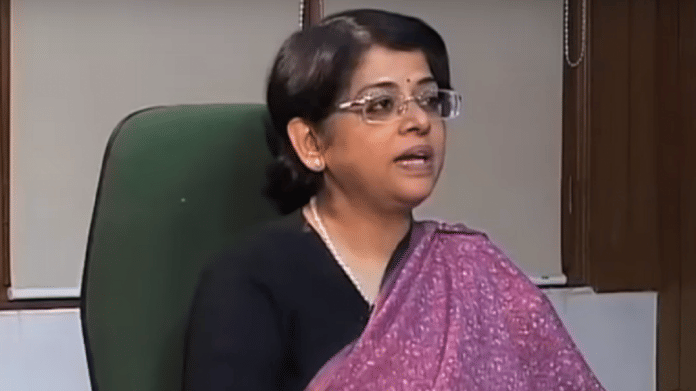After Section 377, Justice Malhotra will also be part of the benches that will rule on Sabarimala issue and adultery laws.
When the junior-most and lone female judge on the Supreme Court bench Justice Indu Malhotra spoke on Section 377, it was a mic-drop moment.
After Chief Justice Dipak Misra, Justices D.Y. Chandrachud and Rohinton F. Nariman read their opinions at length, Justice Malhotra took the microphone and said she would read only a paragraph from her 50-page opinion.
She then said this: “History owes an apology to the members of this community and their families, for the delay in providing redressal for the ignominy and ostracism that they have suffered through the centuries….”
A loud cheer erupted in the courtroom, which was echoed outside as well.
Also read: ‘Homosexuality not mental illness’: What the 5 judges said while striking down Section 377
Malhotra’s presence on the bench signalled a shift in perspective during the hearings as well. Her observations on the everyday realities of the LGBTQ community— succumbing to family pressure to marry the opposite sex and leading a life of mental trauma— showed how she added to and enriched the debate. By talking about women who unknowingly end up marrying gay men, only to realise it later, Malhotra ensured that she brought attention to even those indirectly affected by the stigma.
It is not as if only female judges should hear cases related to gender. But a female perspective on such issues is such a valuable addition. Apart from recognising gay rights, Malhotra’s acknowledgement of the historical injustices meted out to the community through an apology was truly moving.
The monumental ruling on Section 377 is Malhotra’s first big verdict since she was appointed a judge in April. She already has ten judgments to her name, four of which she has authored.
Like a lawyer, she refers to the court as the “Hon’ble Court”. It is also refreshing to read her lucid judgments written in the style of submissions like the ones a senior advocate would submit to the court.
As the junior-most judge on the bench, Malhotra notes that she had the opportunity to read all three opinions before she penned down her short 50-page opinion. She writes what was left out by the other judges.
Malhotra was the only one to discuss the LGBTQ community’s lack of access to healthcare. Significantly, while the other judges treaded carefully while discussing whether sexual orientation is “natural”, “immutable” or simply based on choice, Malhotra simplified it by stating homosexuality and bisexuality is simply a variation of sexuality and not an aberration.
Whether it is “natural”, mainstream or not, the LGBTQ community deserves the same rights.
Malhotra’s recognition of this repression of a particular group for centuries is again a hint to translate protection into preferential treatment in education and employment.
Also read: Supreme Court has earned moment of rest with 377 verdict, but much remains to be cleared
The Supreme Court itself has done it earlier in the 2014 NALSA ruling where it recognised transgenders as the third gender who were “entitled to reservation in the matter of appointment”.
“State is bound to take some affirmative action for their advancement so that the injustice done to them for centuries could be remedied,” the court had said about transgenders.
After this ruling, it is encouraging to know that Justice Malhotra is also part of the benches that will rule on some significant cases like the constitutional challenge to colonial adultery laws and entry of women in the Sabarimala temple.
Justice Malhotra has a short tenure of over three years. But she is around in the Supreme Court till March 2021, one can expect her to be “the sentinel on qui vive for guarding the rights of all individuals irrespective of their sex, choice and sexual orientation”.







Dark clouds are hovering upon the Judicial system in India. The bench comprises of people who have been far away from the realities on the ground. Most shielded and studied abroad. Judges with such background are out of teach of 1.25cr peoples aspirations. With the recent trend of Judiciary dictating terms on societal issues and how people should live is unacceptable and in the wrong direction.
This is the most fucking moment of Indian justice system, none of the judges are studied in India
Mr. Anil in that case studying out of India made our judges more human.
It is a rare honour for an advocate to be elevated directly to the apex court. Justice Indu Malhotra is showing the Collegium has chosen wisely.